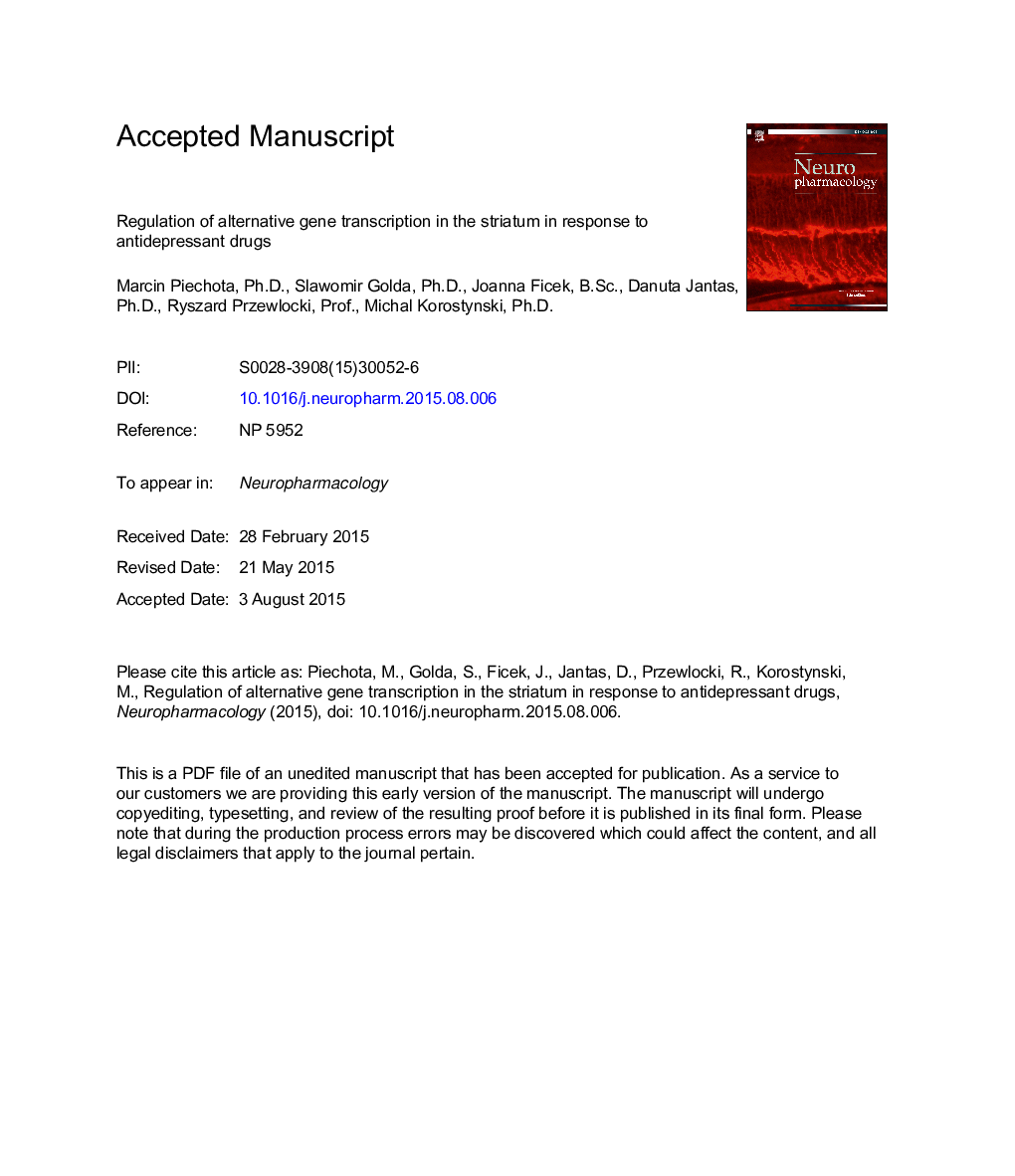| Article ID | Journal | Published Year | Pages | File Type |
|---|---|---|---|---|
| 5813798 | Neuropharmacology | 2015 | 66 Pages |
Abstract
The mechanisms that control the selection of transcription initiation and termination sites in response to pharmacological stimulation of neuronal cells are poorly understood. We used next-generation sequencing and bioinformatics to construct a genome-wide inventory of protein-coding and non-coding transcripts altered by antidepressant treatment. We analyzed available ChIP-seq data to identify mechanisms that control drug-inducible expression of alternative gene variants in the brain. We identified 153 transcripts of various biotypes regulated in the mouse striatum in response to tranylcypromine or mianserin (at a 0.1% FDR threshold). Five drug-responsive gene patterns are enriched in protein-coding variants (77%), regulated by different sets of transcriptional factors (including SRF/CREB1 and GR/CTCF) and expressed in separate cellular compartments of the brain. We found that alterations mediated by proximal promoters in neurons are more specific in the selection of regulated transcriptional isoforms compared with enhancer-dependent alterations in glia. The change in transcriptional programs, from housekeeping to inducible, provides cells with the resource of functionally distinct proteins. We conclude that the regulation of drug-induced brain plasticity may occur at the level of transcripts rather than genes. The expression of specific isoforms in response to antidepressants may constitute a trigger that initiates the long-lasting effects of these drugs.
Keywords
Related Topics
Life Sciences
Neuroscience
Behavioral Neuroscience
Authors
Marcin Piechota, Slawomir Golda, Joanna Ficek, Danuta Jantas, Ryszard Przewlocki, Michal Korostynski,
